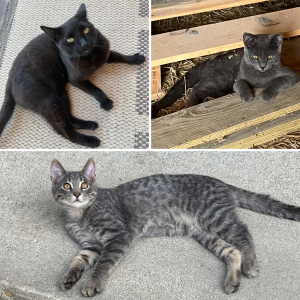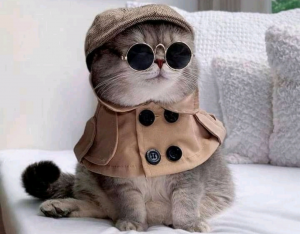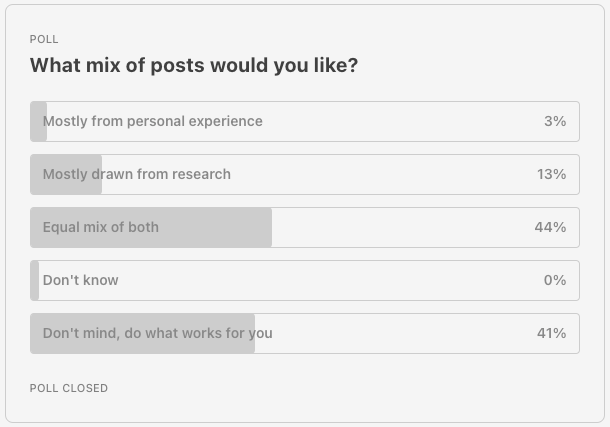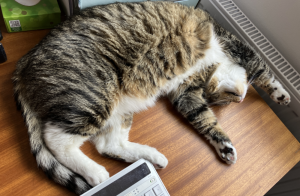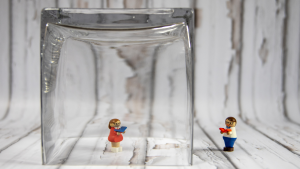 Being hyper-independent cuts you off from essential creative support.
Being hyper-independent cuts you off from essential creative support.
I’ve just come back from a couple of weeks off, a break I really needed and which successfully recharged my batteries. Whilst I was away, I got to thinking about hyper-independence and how bad it can be for a writing career. My husband has more than once joked that if there’s an easy way to do something and a hard way to do something, I’ll always pick the hard way. Except it’s really not a joke, it’s just a statement of fact.
I have no doubt that I have at least a little hyper-independence, which can be defined as “unhealthy and excessive need for self-reliance”, having been bullied a lot as a child and teen. And I also have no doubt that it has led me to making my life more difficult than it needed to have been.
Growing up in a household with self-employed parents in a family where half my relatives were self-employed also emphasised the idea that the standard path of graduating and getting a job was undesirable. Independence was everything. Indeed, I lasted just a few years in employment and became self-employed in 1998. In retrospect, that was an error of judgement, but that realisation came about 20 years too late.
There’s a lot I could say about how hyper-independence has affected my professional life, how I tried to tackle it before I really knew what it was, and how I’ve become less hyper-independent as I’ve grown older, but that will have to wait for another post. This one is about how the book industry unintentionally encourages hyper-independence and why we need to be aware of it and work to ensure that we don’t become creatively hyper-independent.
The obvious source of creative hyper-independence is the myth of the lone genius slaving away over a hot typewriter to write their Great Novel, which is perfect on first draft. (Perfectionism, by the way, can be a result of the same circumstances that produce hyper-independence.)
Most novels are indeed written by one person, which means that one person gets all the attention if it does well. When a book becomes an explosive bestseller, it’s only the author who’s applauded, profiled and photographed, despite the fact that the book will have been a team effort, from agent to editor to cover-designer, typesetter and beyond.
Some novice authors can learn the wrong lesson from this narrative, believing that their writing should be done in isolation, which in turn leads them to put unnecessary pressure on themselves. Excessively self-reliant people already have a problem delegating work or trusting others, which makes it harder to bring in external help during the creative process and starves them of valuable insights into how to improve their work.
This level of self-sufficiency is not just emotionally exhausting, it can also cause burn-out. Talk to any author the day after they’ve handed an early draft over to their agent and they’ll tell you how wiped out they feel. But authors with a healthy support structure around them will bounce back faster than those who have completely drained the well and are having to start again from rock bottom on their own.
Books can be, and frankly should be, a more collaborative endeavour than many people imagine. Even before you have an agent and publisher, whose job it is to help you refine your manuscript, you can find story editors or development editors to provide feedback on improving structure, pacing and character. Beta readers can be great for soliciting useful insights into how your work is being read and a copyeditor can help you pick up typos that have somehow slipped through that eleventy-billionth edit. Hyper-independent writers, however, feel that they ought to be doing all this themselves.
Another way that book-writing culture damages hyper-independent authors is the set of norms we have for soliciting feedback: Editors, beta readers, agents are all brought in after the novel is complete and has at least had a bit of a polish, if not several redrafts. This is poor practice for a couple of reasons: It’s harder to accept feedback, and that feedback can come so late that fixing the problems becomes harder than it needs to be.
I have certainly struggled to accept substantive feedback when I have reach the point of feeling that the work “should” be “finished”. At that point, my feeling emotionally done with the story combines with my hyper-independence to make it almost impossible for me to hear that major changes need to be made. And I know I’m not alone in that. I’ve felt bad giving feedback to friends when I’ve sensed that all they really want to hear about are easily fixed typos.
And, as I’ve written here before, getting feedback towards the end of the writing process for Tag and discovering that I needed to make some pretty major changes was really disheartening. Had I realised 18 months ago that I needed to rethink the structure of the series, it would have been much, much easier to do.
But rarely do authors solicit feedback at the idea generation stage, when everything is still malleable. Perhaps we would benefit from doing so.
Of course, this ties in with another problem that (not just) hyper-independent people have: Trust. How do we trust that our ideas aren’t going to be stolen by the people we share them with? We could ask them to sign an NDA (non-disclosure agreement) but firstly that doesn’t engender trust and secondly it’s impossible to enforce if you don’t have lots of money for lawyers.
But as with anything in life, trust is earnt, either through developing a relationship over time or by social proof, ie seeing that others have trusted a person and not been burnt by them. We develop trust in all sorts of people and institutions in the rest of our lives, yet creative trust seems particularly hard to come by. And if you’re hyper-independent, it’s even harder.
Yet if you look at some of the very best storytelling around, it’s on TV and it has come to us via writers rooms, where a group of people bat idea around until they have honed them down to a sharp point. Why don’t we do this with novels? Why isn’t story development in the very earliest stages of novel writing a more common thing? I know some people like to write to find out where the story goes, but thrashing out the basics before you put fingers to keyboard doesn’t preclude that.
Part of it, perhaps, is that hyper-independence comes with another more insidious trait: The desire to feel that one has conquered the mountain entirely on one’s own. It’s not just that we feel that we can’t depend on or trust other people to help us, it’s that we feel that our achievements are made lesser if we’ve accepted help. And I say ‘we’ because I know that this is something that I’ve been guilty of, and it’s especially true when it comes to creative work. The desire to be able to say “This masterpiece sprang fully formed from my brain, and my brain alone” can overwhelm any feeling that perhaps we might actually need some help, or that we might produce better work if we collaborated.
But no man is an island, and no writer’s work is entirely original. We are all standing on the shoulders of the giants whose work we’ve read before. It’s impossible to write without reading, and everything you read goes into your head where your subconscious mushes it up with everything else that’s ever happened to you and it all comes out in your writing.
The healthy response is to accept this. It’s not just OK that we are influenced by others, it’s good. It’s normal. It’s an essential part of being a writer. Indeed, it makes you a better writer. So trying to control your creativity and keep it entirely separate from your influences is a task that can only end in failure. Know that, accept it and move on.
One piece of advice on dealing with hyper-independence is to “Get comfortable with being uncomfortable” and to practice relying on people. So perhaps the next time you start to feel isolated and lonely as a writer, ask who you can bring into your creative process. Who can you trust? Perhaps it’s only to bat about a single plot point or read a single page, but start nibbling away at your phobia of relying on other people.
Because in order to really flourish, you have to let people in.
{ Comments on this entry are closed }

